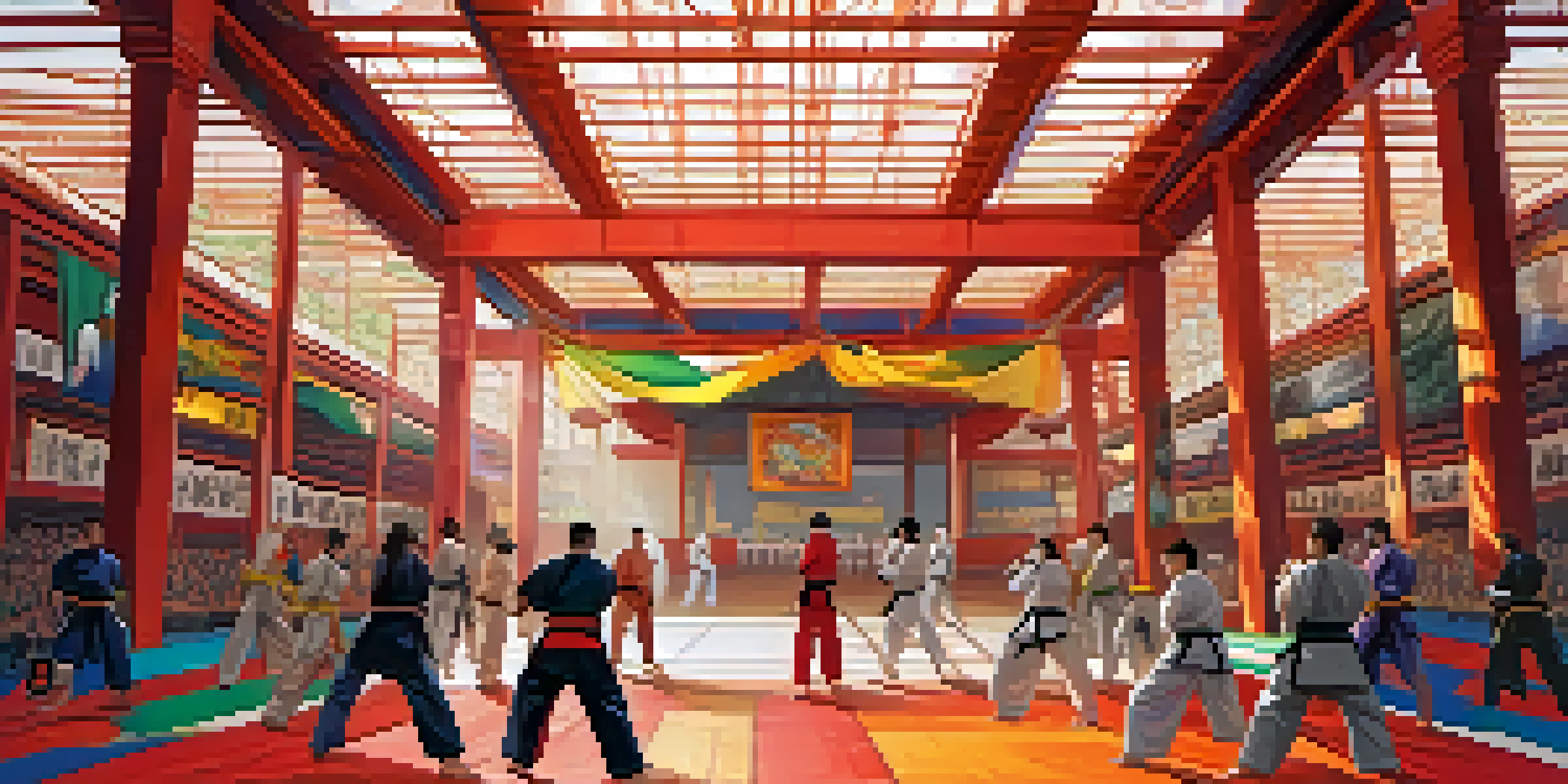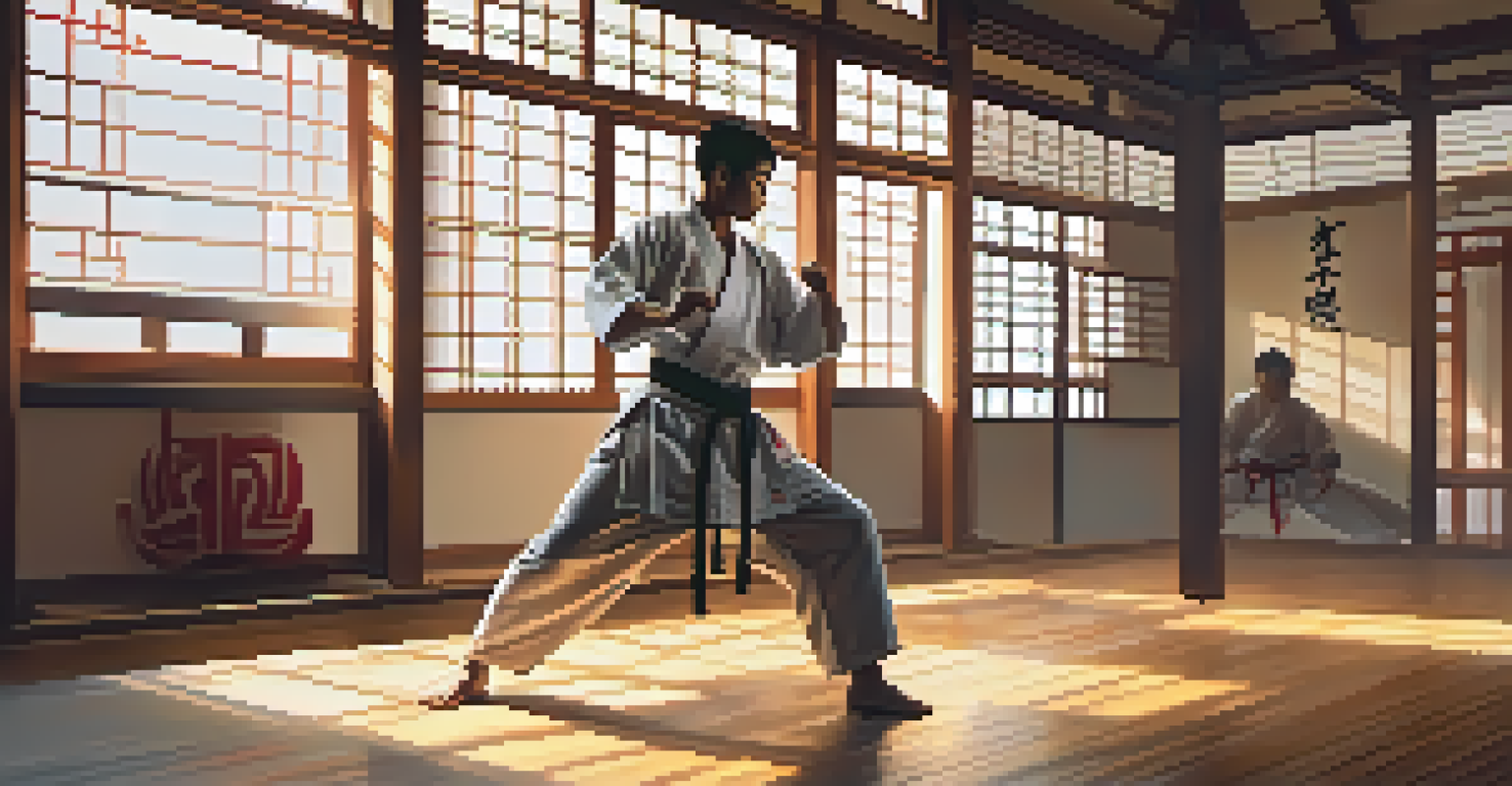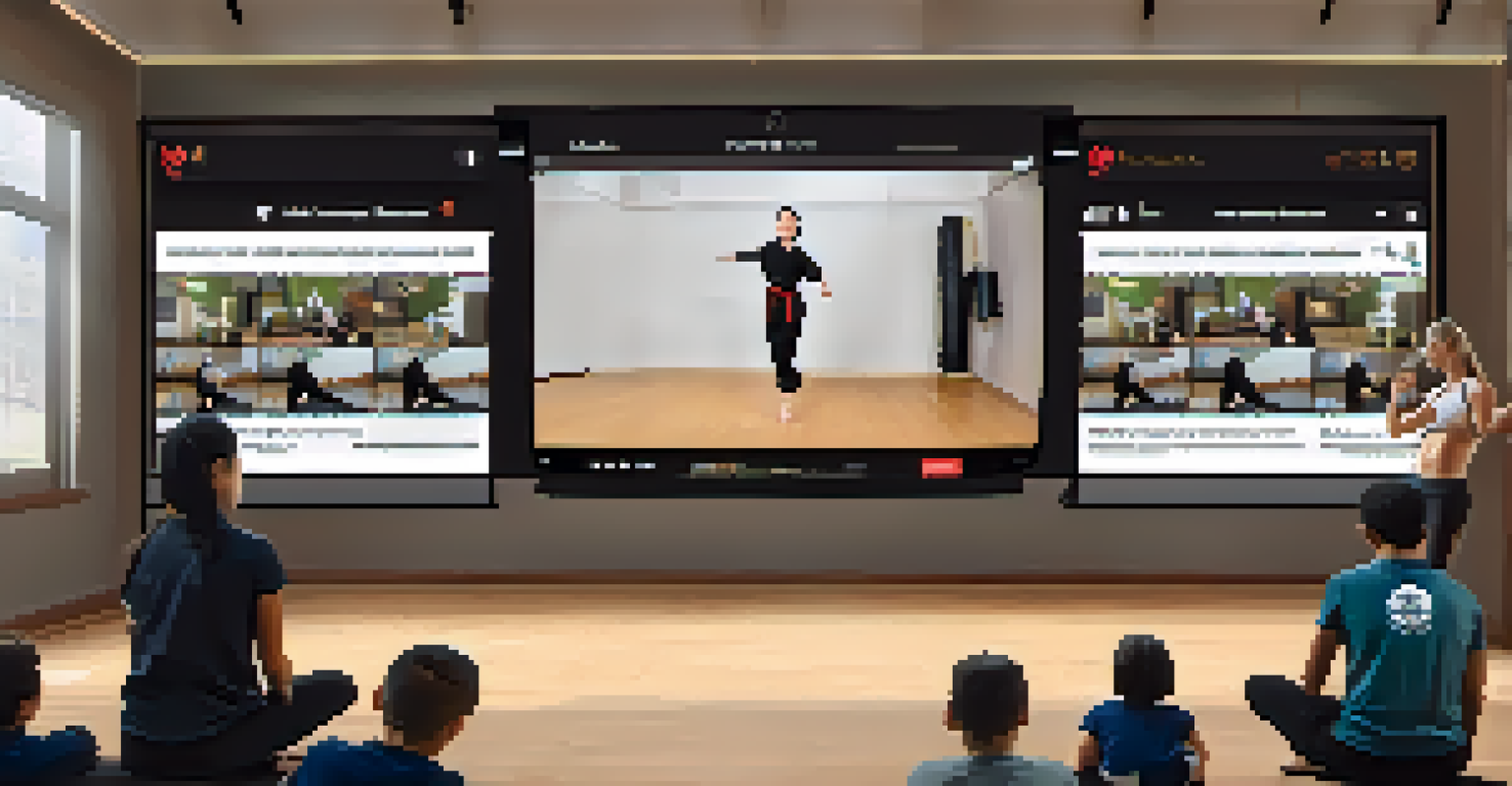How Social Media is Changing the Way We Learn Martial Arts

The Rise of Online Martial Arts Communities
Social media has given rise to vibrant online communities where martial arts enthusiasts can connect. These platforms allow practitioners from all over the world to share their experiences, tips, and even training videos. Imagine a student in Brazil learning a technique from a master in Japan, thanks to a simple video post!
Martial arts is not about the flashy moves; it's about the discipline and the journey of self-improvement.
These communities not only provide a space for learning but also foster a sense of belonging among martial artists. Participants can engage in discussions, ask questions, and support one another in their training journeys. This shared passion creates a global family, united by the love of martial arts.
Moreover, online platforms allow for the exchange of diverse styles and techniques. A student might discover a new approach to their training that they would never have encountered in their local dojo. This exposure broadens their understanding and appreciation of martial arts as a whole.
Access to Quality Instructional Content
With social media, learning martial arts has never been more accessible. Many experienced instructors share free tutorials and tips through platforms like YouTube and Instagram. This means that anyone with an internet connection can learn from some of the best in the field, without the hefty price tag of private lessons.

These bite-sized videos are often easier to digest than traditional instructional methods. Practitioners can pause, rewind, and practice at their own pace, which is especially helpful for complex techniques. Imagine trying to learn a spinning kick from a book—it's just not the same as seeing it in action!
Online Communities Enhance Learning
Social media connects martial artists globally, fostering learning and a sense of belonging.
Additionally, social media allows for real-time feedback. Many instructors encourage their followers to share their practice videos, providing constructive criticism and personalized tips. This immediate interaction enhances the learning experience and helps students improve more effectively.
Building a Personal Brand as a Martial Artist
Social media isn't just about learning; it's also about creating a personal brand. Martial artists can showcase their skills, share their journey, and connect with potential students or sponsors. This visibility can open doors to teaching opportunities or even professional competitions.
The beautiful thing about learning is that no one can take it away from you.
By sharing their training progress, martial artists can inspire others and build a loyal following. Think about how many people have turned to social media for motivation; seeing someone else’s dedication can be the push someone needs to step onto the mat themselves. It’s like having a virtual cheer squad cheering them on!
Additionally, a strong online presence can lead to collaborations within the martial arts community. Instructors can team up for workshops or seminars, bringing their unique styles to a broader audience. This networking aspect of social media helps elevate not just individual practitioners but the entire martial arts community.
The Influence of Live Streaming on Training
Live streaming has become a game-changer in the martial arts world. Instructors can conduct live classes, allowing students to train from the comfort of their homes. This is especially beneficial for those who may not have access to local dojos or classes.
These live sessions offer an interactive experience, where students can ask questions and receive immediate feedback. It’s like having a personal trainer but without the need to travel. Imagine practicing your forms while the instructor watches and provides real-time corrections—that's the beauty of live streaming!
Accessible Quality Instruction
Platforms like YouTube provide free tutorials, making expert martial arts training available to anyone.
Moreover, live streaming helps maintain a sense of community, even when practitioners can’t physically meet. Participants can share their experiences, cheer each other on, and create connections, making training a shared experience despite the distance.
Challenges and Misconceptions in Online Learning
While social media offers numerous benefits, it also presents challenges. With the vast amount of information available, it can be overwhelming to discern quality instruction from poor advice. New practitioners may find themselves confused by conflicting techniques or styles.
Additionally, the lack of in-person instruction can lead to improper technique development. Without a qualified instructor to correct mistakes, students might reinforce bad habits. This highlights the importance of supplementing online learning with in-person classes whenever possible.
Moreover, the portrayal of martial arts on social media can sometimes lead to misconceptions. Spectacular highlights and flashy moves may give the impression that martial arts is all about showmanship, rather than the discipline and hard work it truly requires. It's essential to remind ourselves that behind every impressive performance, there's a lot of practice and perseverance.
Social Media as a Tool for Motivation and Accountability
One of the most significant benefits of social media is its ability to motivate practitioners. Many martial artists share their goals and progress online, creating a sense of accountability. Knowing that others are following your journey can push you to stay committed to your training.
Challenges and trends often emerge on social media, encouraging practitioners to set new goals and improve their skills. For instance, a 30-day kick challenge can inspire individuals to train consistently and strive for personal improvement. It's like having a global training partner cheering you on!
Motivation Through Social Sharing
Sharing progress and goals on social media creates accountability and inspires commitment to training.
Furthermore, seeing others overcome obstacles and achieve their goals can be incredibly inspiring. Social media platforms are filled with stories of perseverance, reminding us that every martial artist has faced challenges. These narratives encourage others to push through their struggles, reinforcing the idea that progress is a journey.
The Future of Martial Arts Education in a Digital Age
As technology continues to evolve, so will the way we learn martial arts. Virtual reality (VR) and augmented reality (AR) could soon play a role in training, offering immersive experiences that enhance learning. Imagine donning a VR headset and sparring with a digital opponent—how cool would that be?
Moreover, social media will likely continue to influence martial arts education by connecting students and instructors in innovative ways. New platforms may emerge that cater specifically to martial arts, making it even easier to find quality instruction and community support.

Ultimately, while social media has transformed the landscape of martial arts learning, the core principles of discipline, respect, and hard work remain unchanged. As we embrace these new tools and technologies, let’s remember that they are here to enhance our practice, not replace the dedication that martial arts requires.